Review of Planet of the Apes The New Kingdom: are we making faces?

20th Century Fox resurrects a monument from its catalog. 56 years ago, the studio tackled one of Pierre Boulle's most acclaimed works. French — to which we also owe River Kwai Bridge — explored the genre of science fiction and a distant planet populated by numerous primates. An inverted mirror of our civilization, humans were then reduced to slavery, becoming the prey of a simian society.
In front of Franklin Schaffner's camera, Charlton Heston played a astronaut set out to discover this unknown planet then quickly captured by evolved apes. In the midst of the Cold War and while the United States was launched into a space race, the film met with critical and commercial success for its look at America in the 60s and the religious extremism.
Several sequels will thus see the light of day before Tim Burton's reboot puts an end to the license. The father of Beetlejuice And Edward Scissorhands does not convince, and 20th Century Fox buries the projects evolving around this rich mythology. We will have to wait until 2011 for the brand to return to the forefront with The origins.
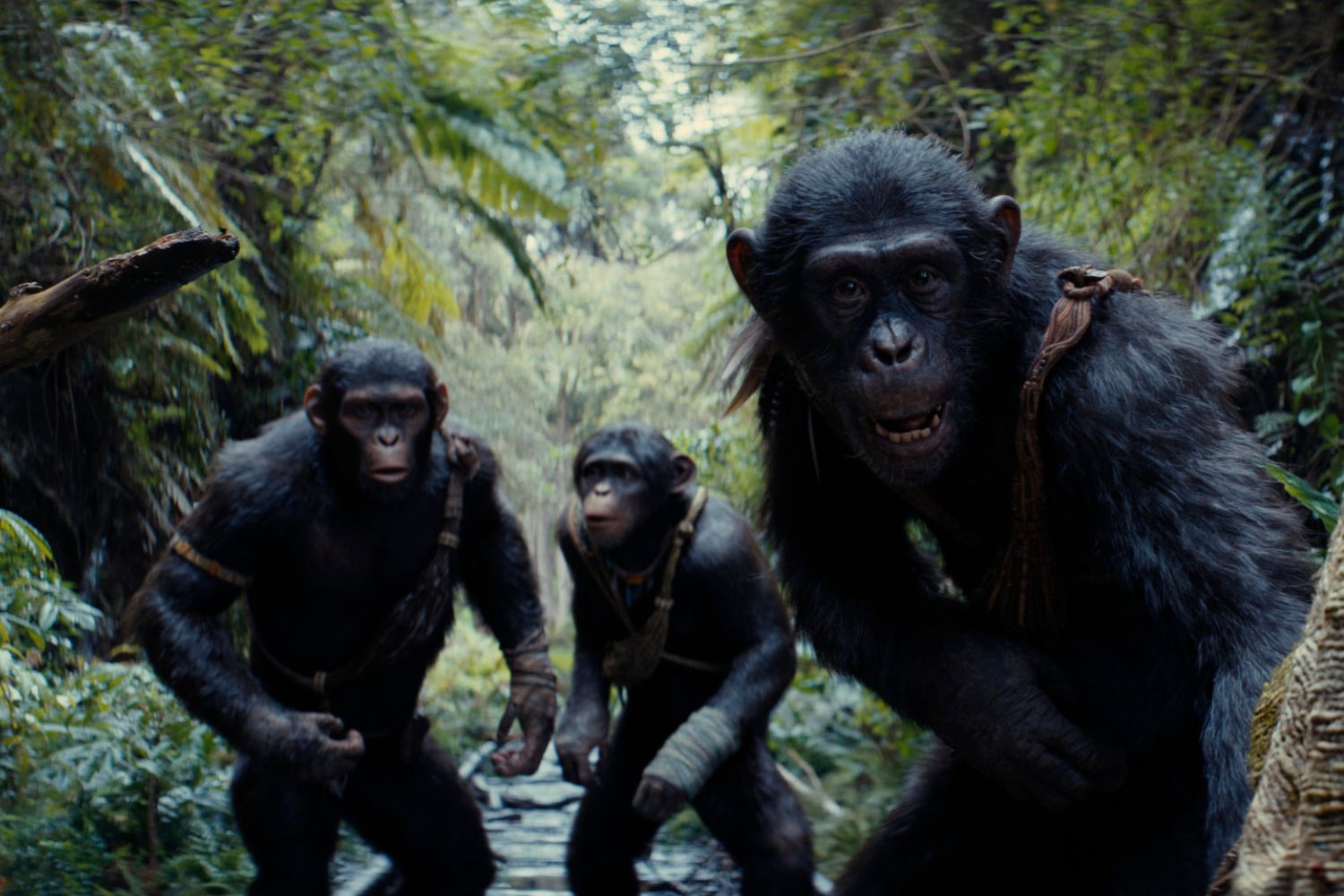
Between prequel and reinvention, the film starring James Franco intended to tell how Humanity was heading towards its doom. Alongside Caesar, in a contemporary era, spectators learned that it was research into Alzheimer's disease that caused humanity to descend into chaos. In wanting to tame nature, the human race has returned to the wild state.
After this trilogy, which extended until 2017, The Planet of the Apes changed hands in 2019. Now under the aegis of Disney, the 20th Century was to hatch a new version. Wes Ball was recruited for the occasion. The director of the trilogy The labyrinth has the mission to open a new chapter, far from the primate camped by Andy Serkis.
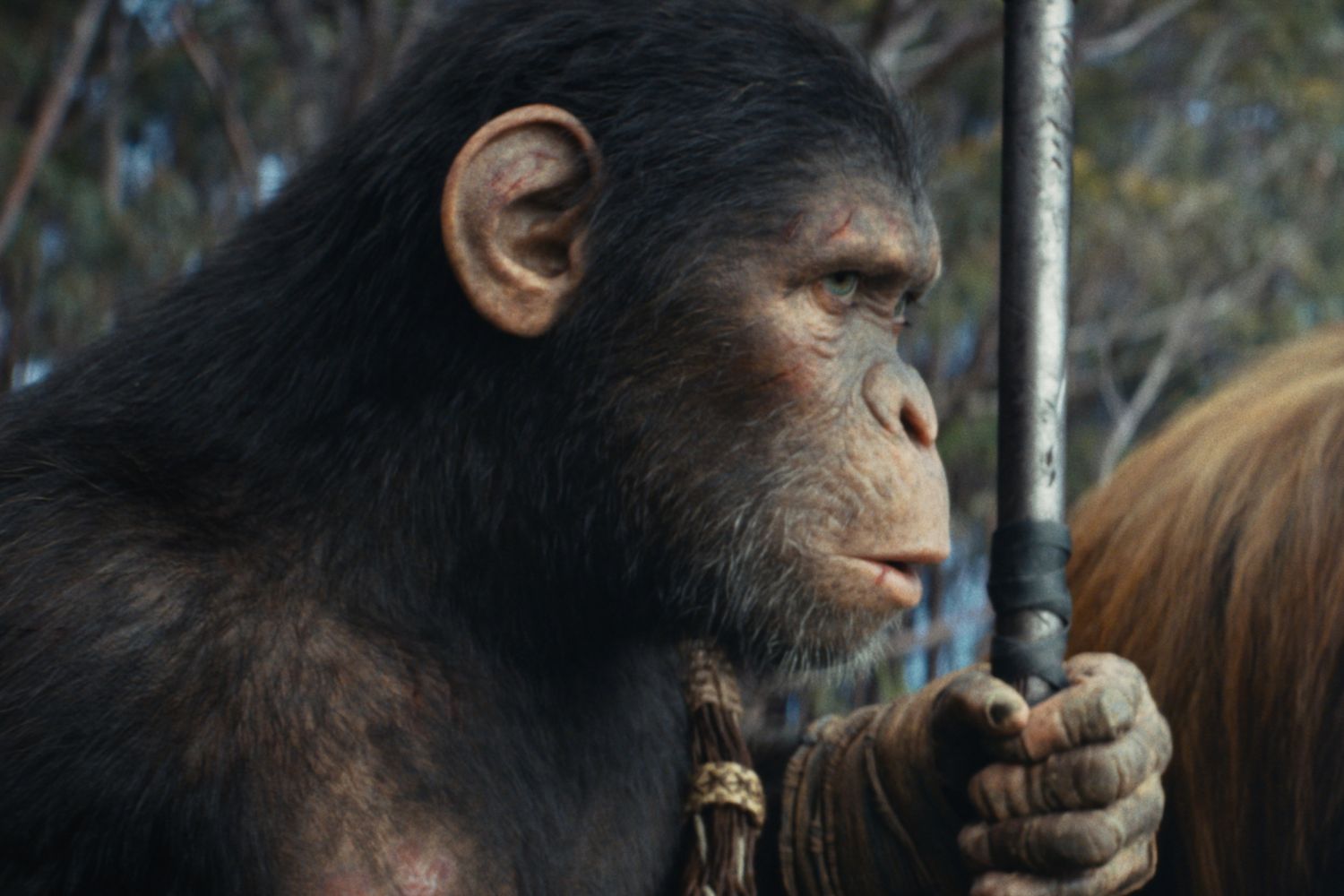
It is now around Noa, one of the distant descendants of Caesar and his clan, that the saga will revolve. Several hundred years after Supremacy, the apes took over and humans returned to the wild. Devoid of speech, they live in fear of being attacked by clans of Simiformes. When young Noa's path crosses that of a human named Nova, he undertakes a perilous journey that will lead him to question the past and the choices that will define the future of his species.
Crown Jewel
When it was released in 2011, alongside Weta — at work on The Lord of the Rings — The origins had reached heights of realism with motion capture. About fifteen years later, The New Kingdom also takes advantage of cutting-edge technologies to give substance to its ambitions. From the first moments, Wes Ball's film demonstrates an incredible visual copy, as much in its way of immortalizing a planet Earth in the wild as the apes who inhabit it. The first scenes are an invitation to travel through a hypothetical futurewhere skyscrapers are adorned with greenery and where the nature has reclaimed its rights.
The monkeys have gained in detail, the precision of digital effects is striking and each of the characters benefits from the same treatment. If Supremacy had already captivated spectators with its management of digital beings, The New Kingdom is even more grandiose and breathtaking. As The origins took advantage of the technological advances initiated by James Cameron's Avatar, this new vintage learns from the visual richness of The Way of Water to bring its settings to life. The decade that separates The origins of New Kingdom also plays in favor of a more great ease and fluidity of movement for primates who indulge without restraint in chases and muscular confrontations.
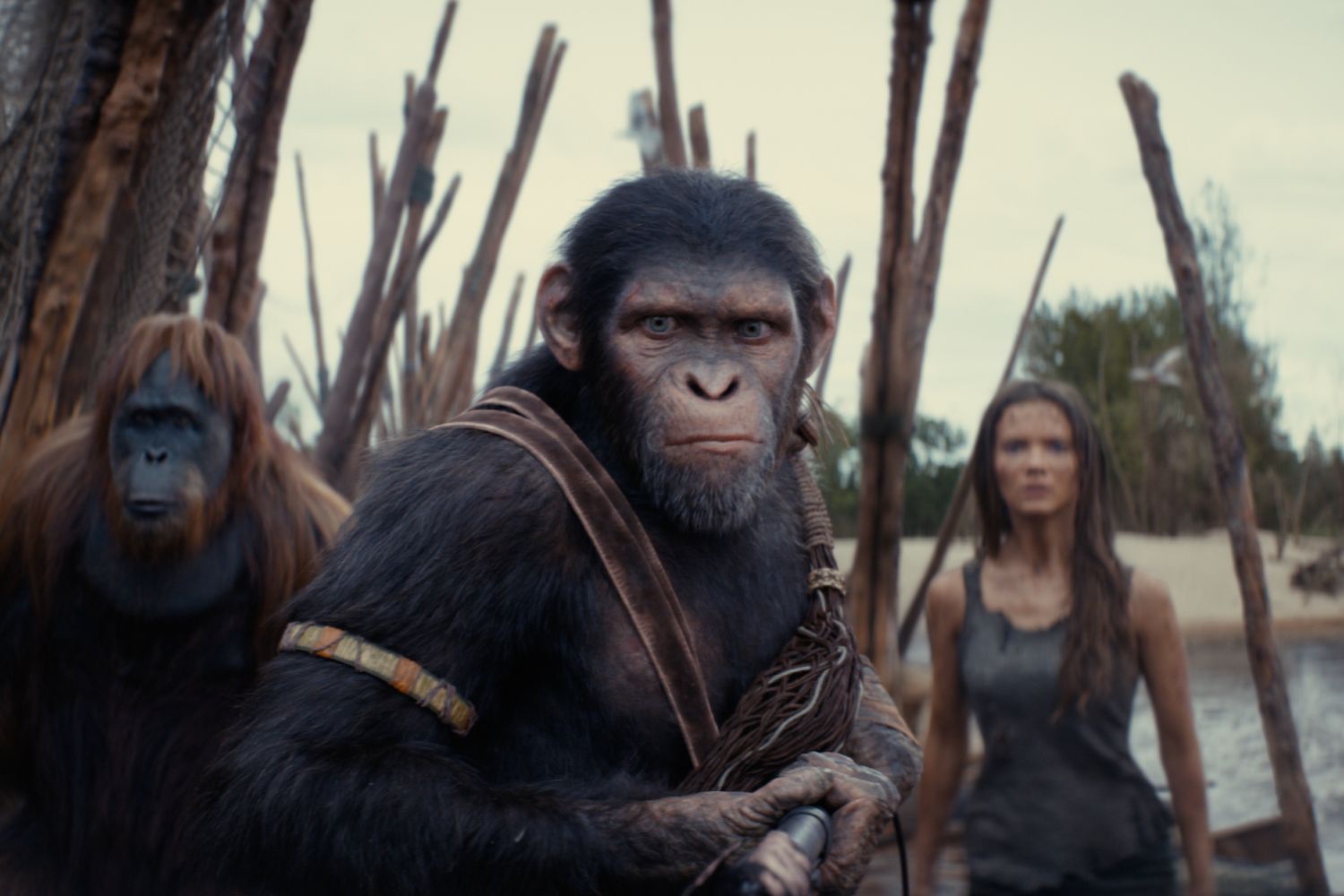
Wes Ball put his experience to work on The labyrinth to create scenes the certain energy and who support the caracterisation of certain antagonists. The rhythm easily allows spectators to imagine the destructive force of the new king's henchmen. As technology advances, The Planet of the Apes flourishes to gain more height, to see biggerboth in form and substance.
Knowledge is the key
Through its imagination, Planet of the Apes has always questioned our contemporary society. From its first to its last scene, Franklin J. Schaffner's film questions the future of a Humanity always quick to evolve and go beyond the laws of nature. When George Taylor is confronted with the reality of his journey, which made him return to Earth years after his departure to find a human civilization reduced to nothing, there is no longer any doubt about the fact that fatalism is the driving force behind narration.
If the reboots could have sacrificed this political dimension for the benefit of great spectacle, the films directed by Matt Reeves and Rupert Wyatt demonstrated a mastery of the themes inherent to the brand. The supremacy of apes is always an opportunity to highlight human failings, the faults of a intelligent species that must say goodbye to its supremacy.
With The New Kingdomit is no longer a question of placing humans as antagonists, but rather of telling an ape civilization under construction. Since the battle led by Caesar, the apes have divided into autonomous clans and live in harmony. The arrival of a new suitor for the title of king of the monkeys will nevertheless put this peace in danger.
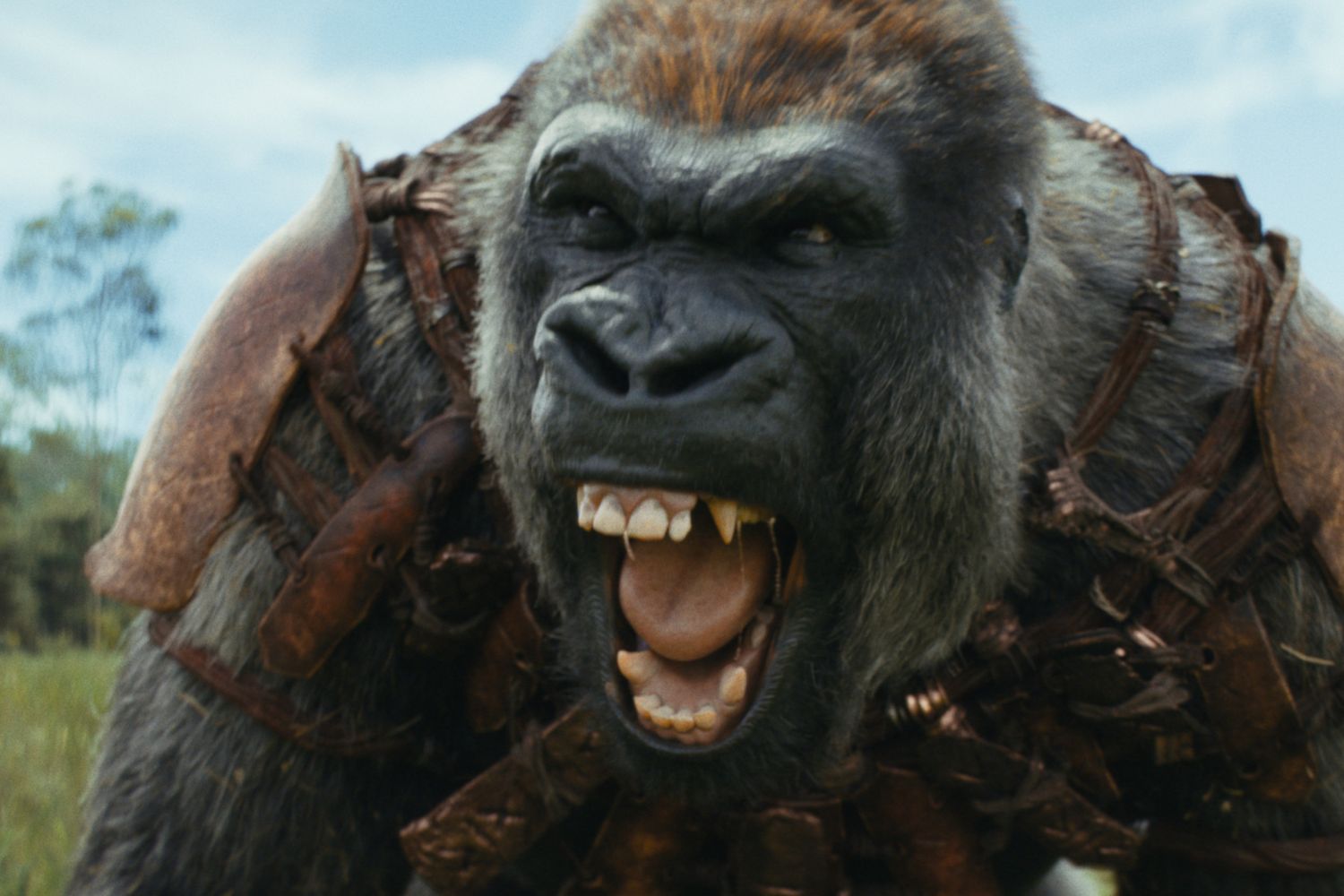
Therefore, it is a race for knowledge and domination which will advance heroes and antagonists. Through the eyes of young Noa – who embarks on an initiatory journey to the origins of his people – the film questions progress and technology. The director's gaze falls on an emerging conflict articulated around the confrontation of two schools of thought within the species. The main antagonist then appears as the perfect counter to Noa, who dreams of a world in which harmony reigns supreme. If this approach could have pushed the scenario to revel in the vision of a utopia, the scenario of Josh Friedman juggles all his themes with great agility.
Between past, present and future
The author offers scenes of rare effectiveness and does not skimp on the effects of surprise to captivate his audience. The long introductory phase is particularly successful, managing to raise the stakes of the story without skimping on the drama. If certain narrative elements are overlooked, as when it comes to telling the story of a traitor to his species, it is clear that The New Kingdom do not deserve. Under the leadership of Mickey, the saga has (almost) lost none of its splendor and is multiplying the good ideas.
Between heritage and renewal, this sequel which is not really one is illustrated by its creative force as much as its respect for the works which preceded it. The post-apocalyptic world proves once again that it has a lot to offer to aficionados and newbies alike.
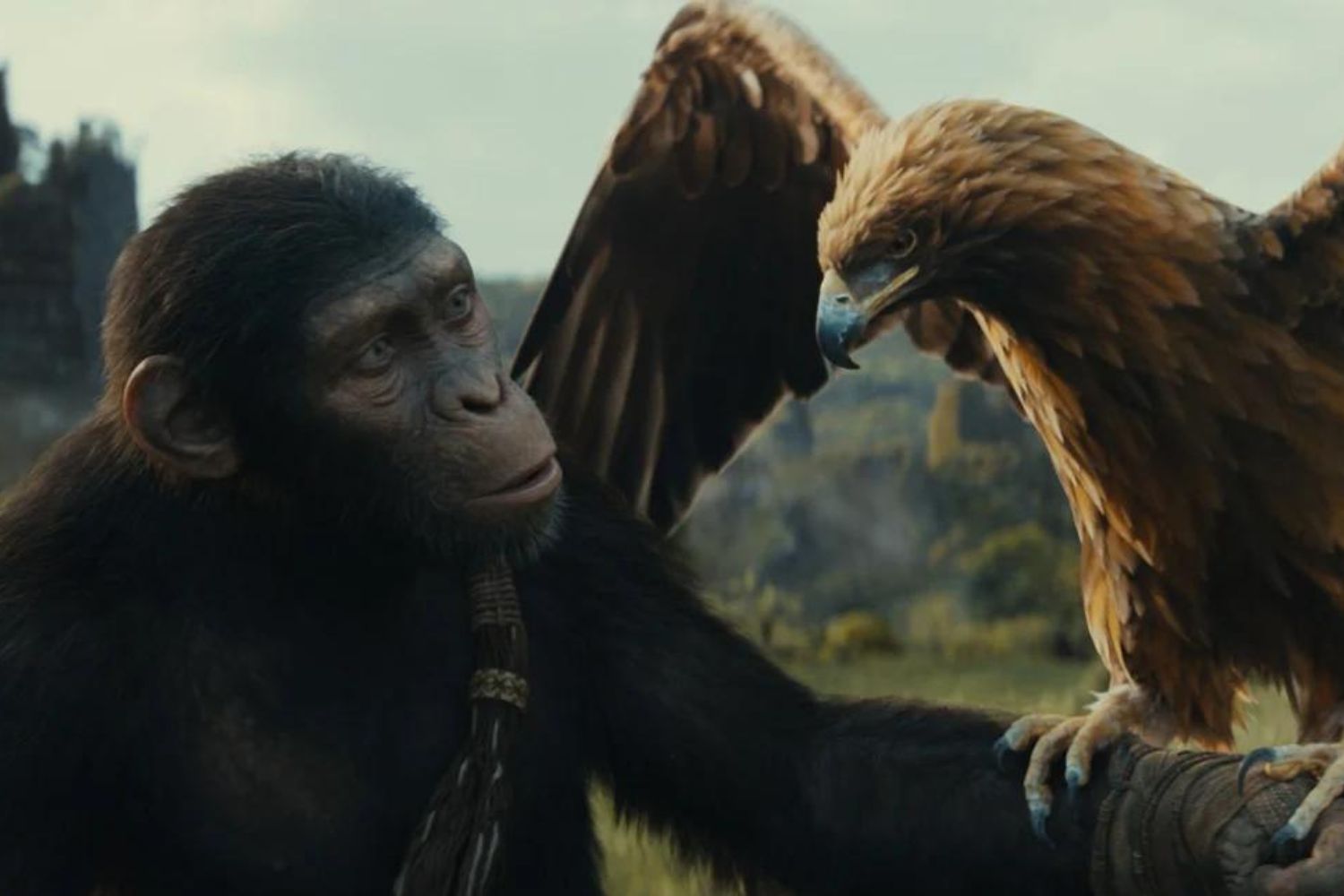
Spectators could have feared that at Disney, The Planet of the Apes sacrifices its narrative ambition for the benefit of grand spectacle and the overbidding of means. Finally, this new version benefits from the same control narrative than its predecessors and with an always innovative aesthetic. The Planet of the Apes thus confirms its status as a license which counts within Mickey's stable, and this will undoubtedly not be the last appearance of the primates on our screens. The New Kingdom opens a chapter that we can't wait to explore, hoping that the franchise maintains its course.




